My Meetings with Putin (True Story)
Report from St. Petersburg, circa 1994-1995….If Only Tucker Had Asked Me
When I saw Tucker Carlson interviewing Putin…
…just like when Trump conducted phone calls and private meetings with Putin (maybe he still does), I’m reminded of my own interactions with Putin decades ago.
Yes, believe it or not, I met with him in person a number of times. (No photos on my end.)
And one story in particular highlights how risky (for our country) those private Trump-Putin meetings and calls were. And also underscores how predictable it was that the Tucker Carlson “interview” would not work out well for the host, even if it was a gift to Putin.
My Russia Years: 1993-1996
After college, I worked at a DC-based think tank called CSIS (the Center for Strategic and International Studies) and helped run a project in St. Petersburg, Russia.
This was in the early to mid 1990s, a brief window where under Clinton and Yeltsin, the US and Russia got along.
The project I staffed was working to bring guidance and technical assistance to a new generation of leaders in St. Petersburg, a wonderful city. We were trying to bring best practices on everything from a functioning legal system, to banking, to infrastructure, to energy and port development.
Our project was co-chaired by the Mayor at the time, Anatoly Sobchak, a charismatic and western-minded reformer, democracy advocate, former law school dean and co-author of the new Russian constitution. Many thought he'd succeed Yeltsin. His leadership was one reason people had hope for Russia overall, and why our project focused on the city he led.
To be clear, I didn’t live in St. Petersburg permanently for this work. But we would travel back and forth regularly—staying for weeks at a time—both in the dead of winter, where the sun was out for only a few hours, and during White Nights (June), where nighttime was more like dusk. Summertime there was spectacular.
Overall, I think of the time as my Forrest Gump years, Russia-style.
Not only because, at times, I found myself in truly unique situations: as the honorary guest of a ballroom dancing competition on the historic island of Kronstadt, handing out the trophies to the winning danders; sailing on a small boat in the Gulf of Finland; riding the Red Arrow train to Moscow, a towel under the door of my small cabin to avoid being gassed via hose—a common tactic of robbing foreigners back then; and having two men armed with machine guns knock on my apartment door in the middle of the night (apparently I had set an alarm off). And many more.
But the experience was also Forrest Gump-like because over my time doing this work—between 22 and 24 years old—I met the likes of Henry Kissinger, Paul Bremer, Bob Livingston (who later became House Speaker for about a day), Ambassadors, a whole lot of Finns, the current oligarch/CEO of Gazprom (he was a lawyer for the City back then), and more. No, I didn’t keep up with any of them (in 1996, I went to law school and have never been back to Russia).
The Deputy Mayor
But I also met one other person along the way.
Mayor Sobchak had several deputy mayors we would meet with regularly—some would later go on to major jobs in Moscow. (The city’s finance director would go on to to serve as Russia’s finance minister from 2000-2011). It was an interesting mix: a younger generation—smart, friendly, and seemingly eager/open to embrace new opportunities of a new Russia. And an older generation, holdovers who had clearly been in similar jobs before the changes of prior years, but—at least the ones we met—doing their best to adjust to the new world they were living in and their new roles. We also met with a lot of older generation “business leaders”—former party/government officials who, being in the right place at just the right time, now found themselves sitting on top of major private businesses as their CEOs. (St. Petersburg was home to many former defense manufacturers, and many of these “new” companies were looking for ways to convert that infrastructure into other types of manufacturing).
Anyway, among those deputy mayors was a man who didn't fit cleanly into the buckets above. While in his early 40s at the time, he was quieter and more serious than Sobchak and the others we met of the younger generation.
His name was Vladimir Putin.
Deputy Mayor Putin. (That’s not my photo, but that’s what he looked like at the time.)
At one point (my sense is shortly after he was named to that deputy mayor post), the Mayor assigned Putin to run point on our project. He essentially became our liaison, so we met with him more than the others.
He would take care of logistical details of our work. Setting up one-on-one meetings, site visits, and conferences with various leaders. We would brief him on our work to relay back to the mayor. He’d sit in when the mayor was absent.
To do this, we would meet with him regularly, often with just a few people.
(BTW, the picture below is approximately what I looked like around then. I know, I know—he was surely intimidated seeing me across the table)
Overall, Putin came across as serious and reserved. Amid that group of extroverted intellectual heavyweights and reformers, and some big personalities, he was the guy who made the trains run on time. Sort of an operator, dedicated to practical details, less focused on the broader substance. That was my impression, at least. At some point we heard he had been in the KGB in East Germany.
But by the standards of Western business and politics, he didn’t stand out. When he spoke, unlike the engaging charisma of some of the others, he’d speak for minutes at a time about all those details we were reviewing. Little intonation. No emotion on his face, if he was looking up or forward at all. It wasn’t a conversation with your usual back and forth. Meetings with the older generation often were like this.
Socially, he wasn’t friendly like many of the others. Always serious. All business.
Because I would have been applying those Western standards, I would never have predicted higher office for him, let alone his ultimate rise to national power. That was for Sobchak, that finance minister, and possibly some of the others around him. So yes, when—years later, after I completed law school and moved back to Cincinnati—a largely unknown figure named Vladimir Putin was named Russia’s Prime Minister in 1999, soon to succeed Yeltsin as President a few months later, I was stunned. (Sobchak died in 2000.)
The Moment
But in all those meetings, amid all these conversations, one small detail really matters here...Deputy Mayor Putin never spoke a word of English. Not even a hint.
Now, I spoke some Russian back then—conversant, I’d call it. I used it to navigate the city, and to be friendly with those we were working with. And I was able to pick up on much of what the Russians were saying in my presence.
But others I worked with did not speak Russian. So we always had an interpreter with us, including for our Putin meetings.
And he never once spoke English.
Until…in one meeting, well over a year into our work, something happened.
My boss, an interpreter and I were meeting with Putin.
As always, the interpreter translated Putin’s words into English.
But in this meeting, the interpreter must’ve made a mistake.
Because as she translated his words into English, he cut her off, then corrected her.
In English.
And this was not some small, simple word. It was a complicated term of some sort. He had said the word in Russian, had heard her translate it into English, knew she had used a word that didn’t quite capture his meaning, and then replaced it with the correct word, in English, before returning back to Russian.
In short, he did something I would've been unlikely to do with my conversant Russian.
He knew English well. He was keeping up with both sides of the conversation.
Which also meant that the entire time we had been meeting with him, he had heard and understood everything we had been saying.
Not just what we were saying to him. But what we were saying in his presence.
And we had no idea.
And remember—this was on a technical assistance project where we were working together, in partnership.
So holding back his healthy knowledge of English didn't serve any real purpose (in hindsight, it clearly did!?)
The moment he uttered that word in English—when we realized a man easy to overlook amid the charismatic characters around him (who often would throw in some English), had a lot more going on than you first thought, and I wondered what else I’d previously said in his presence—stuck with me so much that I based a scene on it in my first novel—The People’s House (which Politico Magazine once called the “thriller that predicated the Russia scandal” 😎)
Tucker and Trump: Playing the Fools
But I also recalled that moment whenever our fool of a former president used to meet with Putin.
Whenever Trump met one-on-one, kicked staff out of the room, and agreed to tear up the interpreter’s notes;
Whenever he had those repeated phone calls--and those are only the ones we know about;
Whenever he communicated through whatever back channels they'd set up;
Whenever he agreed to whatever he agreed to without us knowing anything about it;
At every meeting and on every phone call during his presidency, I remembered that moment with Putin.
Because Donald Trump thought he was meeting with an old buddy and kindred spirit, all while he was actually playing the fool to a savvy operator.
In every interaction, be assured, Trump dug a deeper hole. After every interaction, he was more deeply compromised than before.
And I of course relived that moment again when I first heard a few days ago that Tucker Carlson planned to interview him, and even more so when I saw clips of the humiliating interview itself—where Tucker, like Trump, played the complete and utter fool. Putin’s propaganda tool.
Indeed, it looks like there were a few moments where Tucker realized it—where he had the feeling I did when Putin corrected that interpreter in English. The difference, of course, is that I was a 23-year old kid in a private meeting, not a media figure desperate to stay relevant, taping a high-profile interview only to be made a fool of in front of millions.
For example, this summary sticks out:
Or here, as he’s forced to sit there silently while airing bizarro revisionist history:
And especially this one, where Putin shows Tucker he knows a lot about him and his past (failure)—and wants the world to know that he knows:
And, really, for the entire interview.
When Putin and Trump each met with him, they assumed they could get something out of it for themselves. Perhaps win him over in some way.
But in the end, Tucker got played. Trump got used.
Putin gained.
They should’ve checked with me.
Because before I was even 25, I could’ve warned them to be a lot more careful.





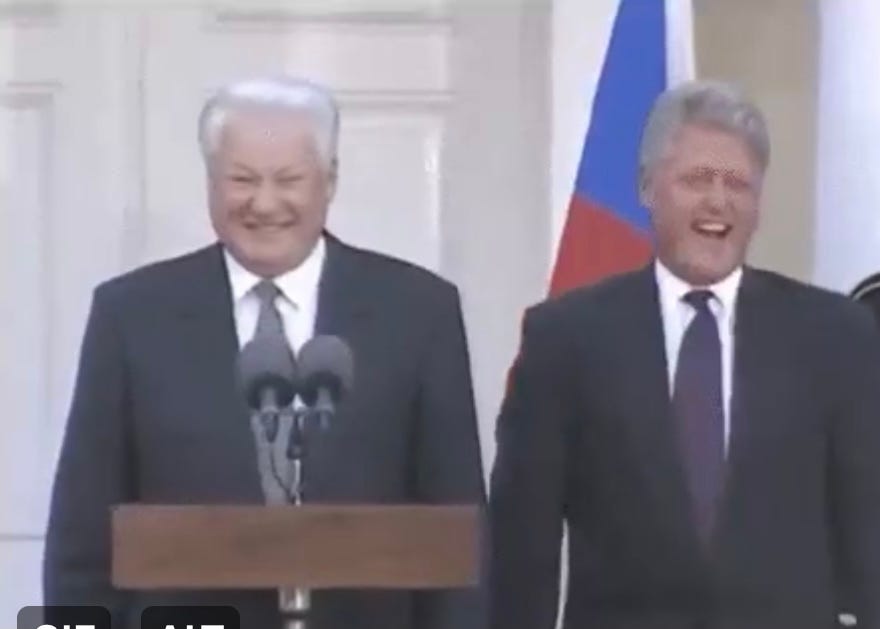
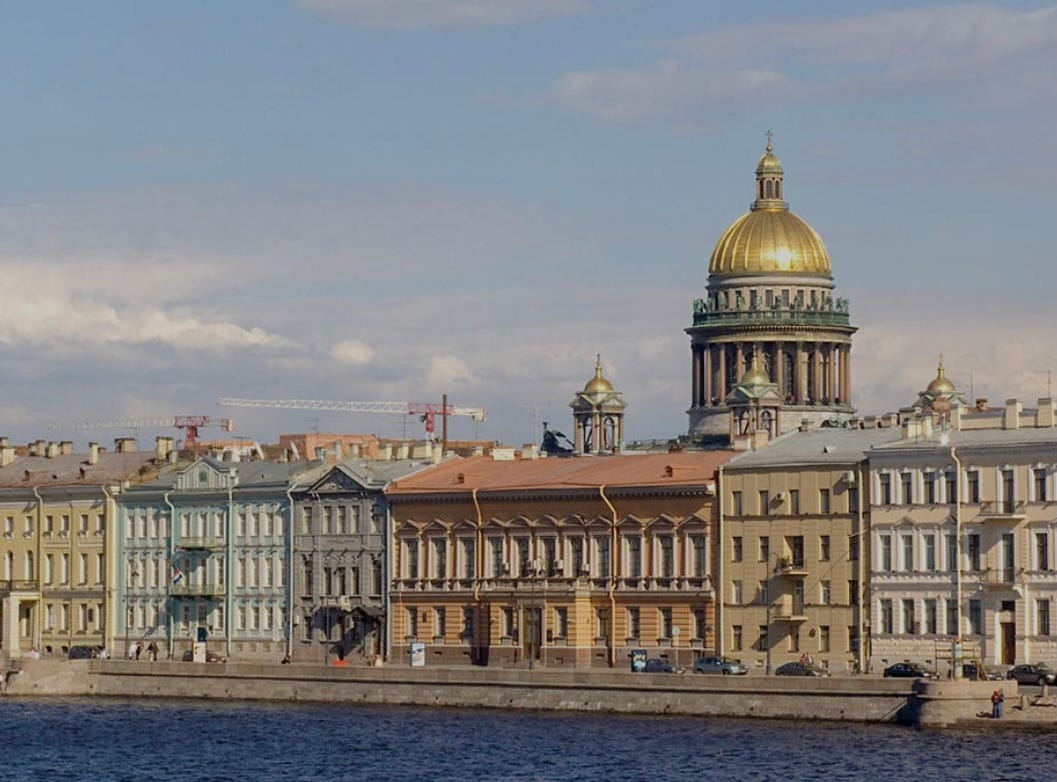
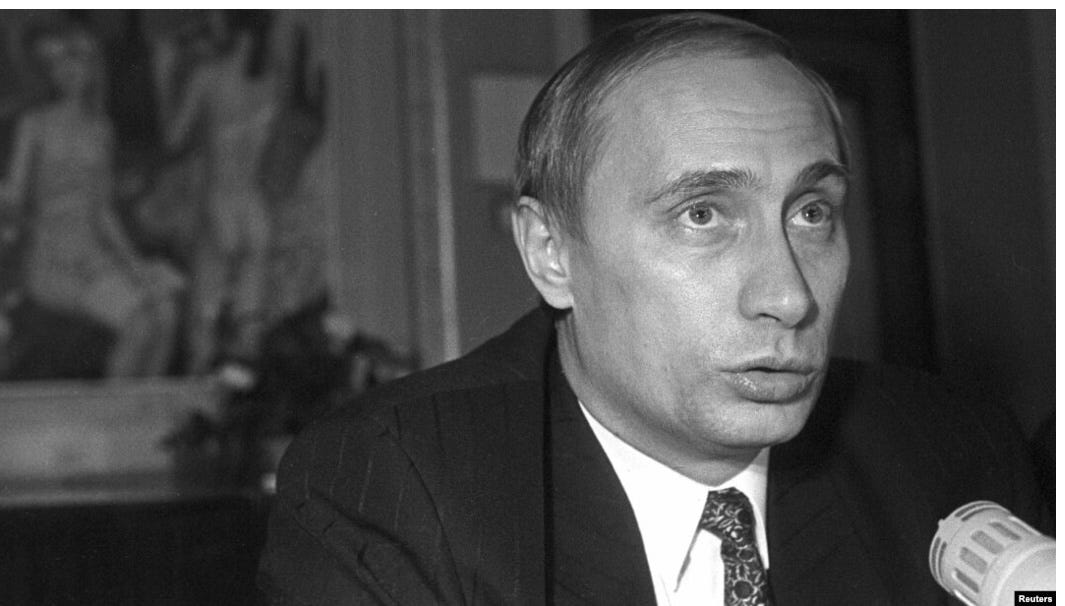

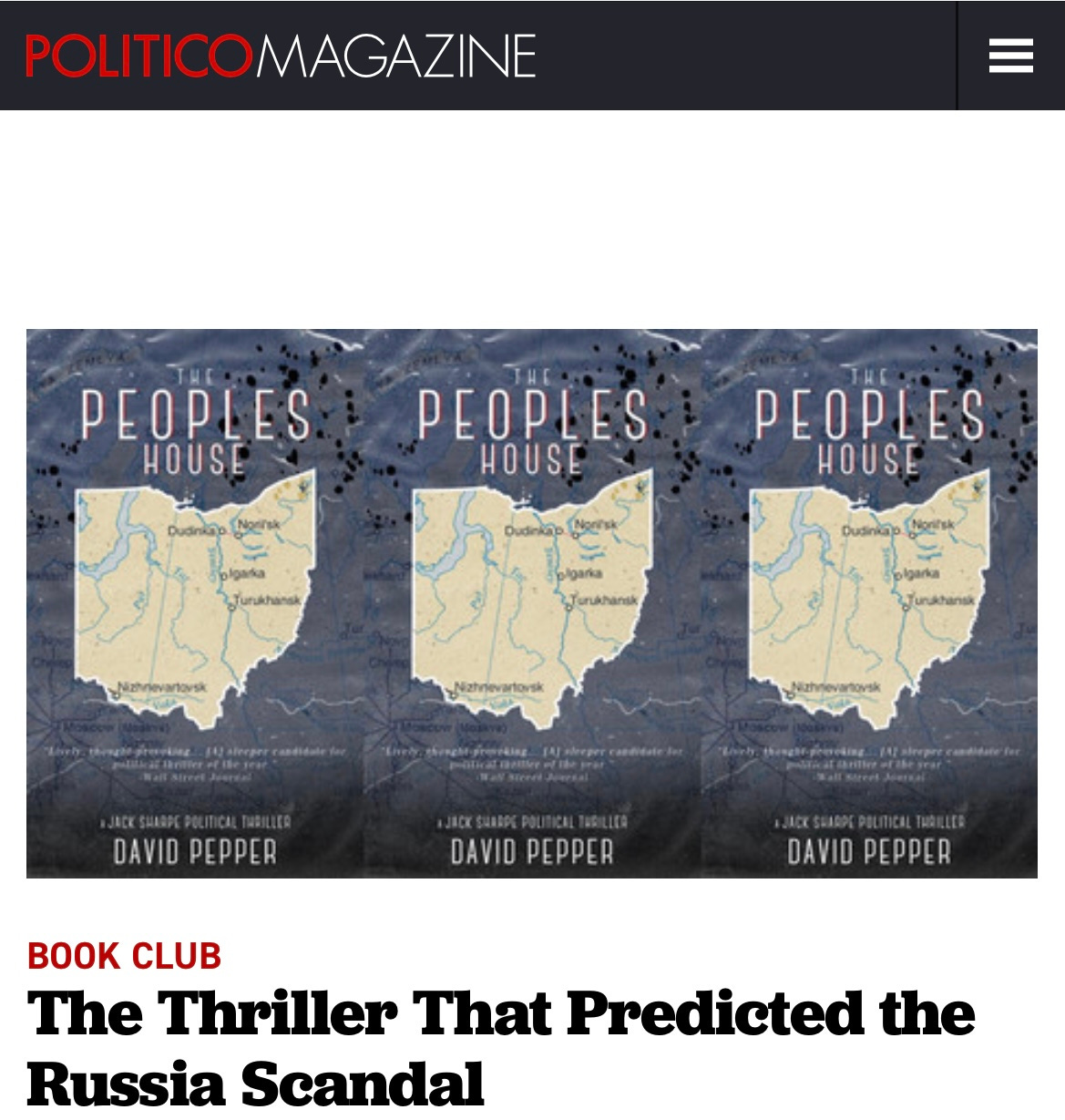
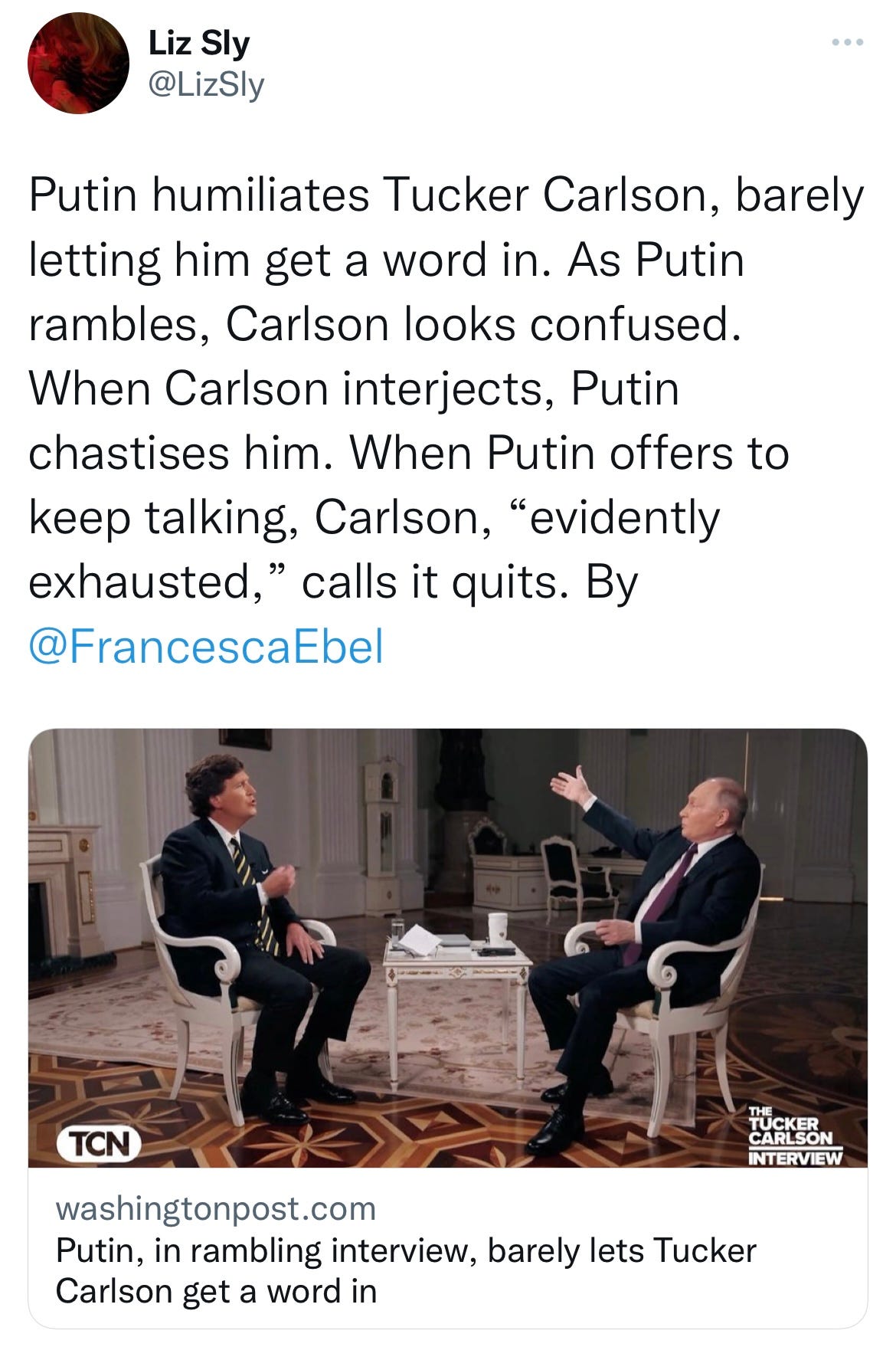
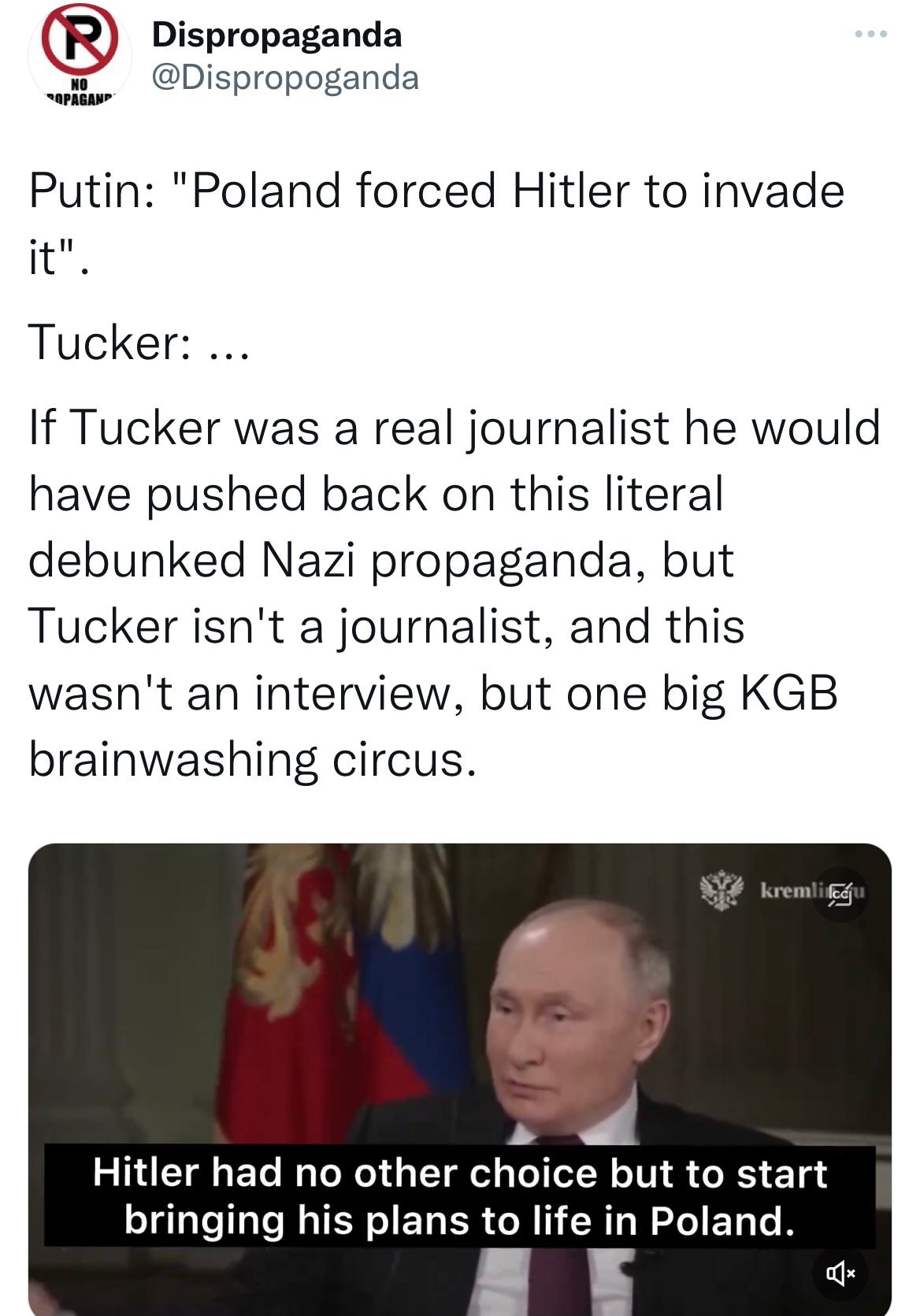


OMG David!!! Your story is a political Science lesson. The country must hear your experience with Putin. I am mesmerized
You are truly a Renaissance Man, David. Amazing memories which inform your view of today’s world. Thank you for sharing with all of us.